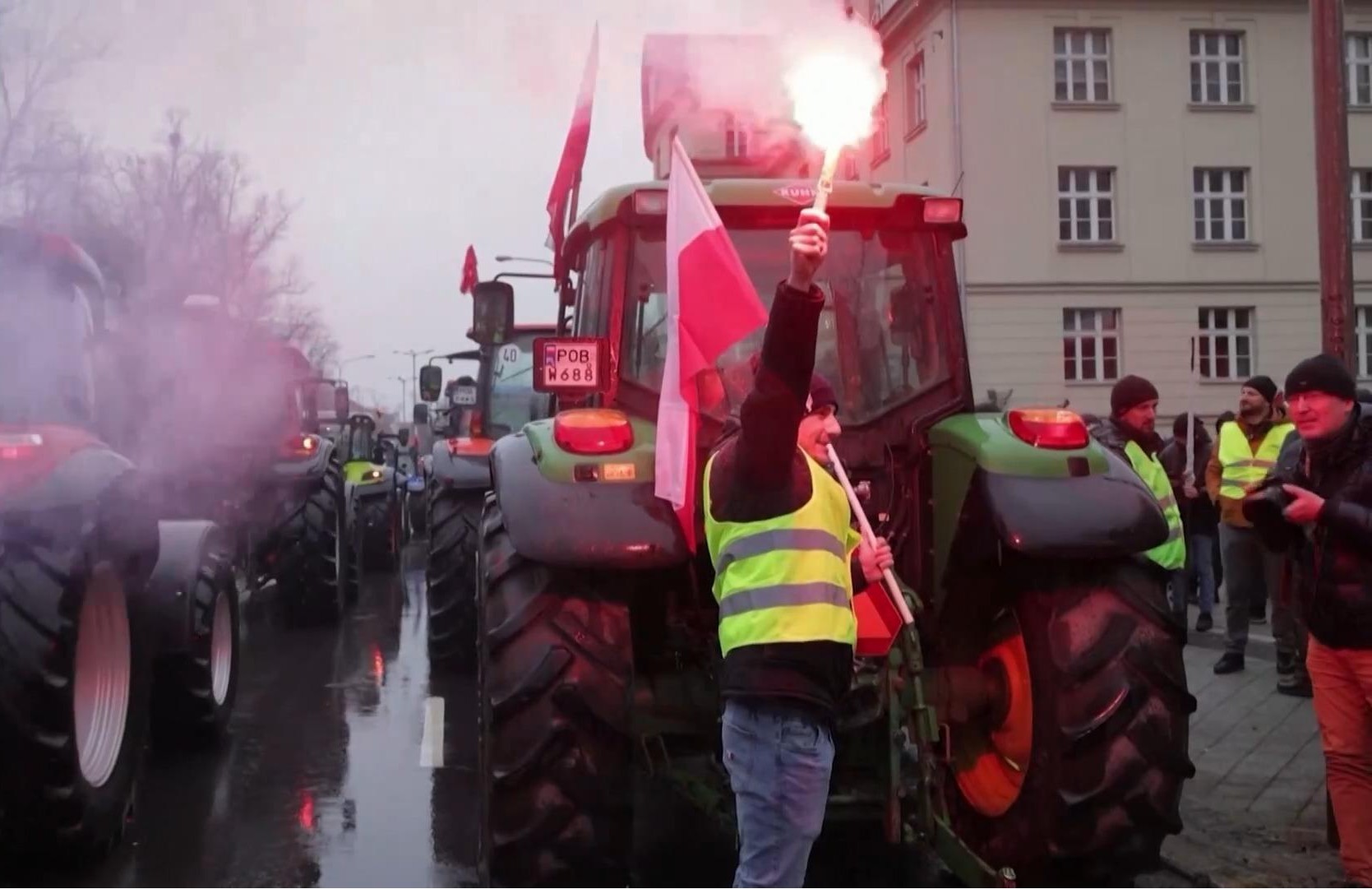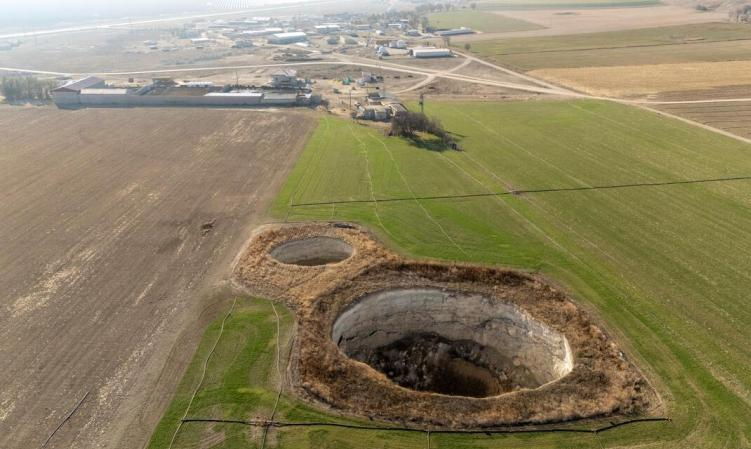
On March 20, Polish farmers protested in about 580 locations across the country, demanding the repeal of the unreasonable provisions of the European Green Deal, sealing the border with Poland and blocking the flow of agricultural products from outside the EU countries. About 70,000 farmers participated in the protest, which blocked major roads and caused traffic disruption in many parts of Poland.
Protests by farmers in Poland and other EU countries have been going on for weeks. In Poland, the background of the farmers' protests is mainly rooted in the dissatisfaction with the EU agricultural policy and the fear of the impact on the domestic agricultural market, mainly reflected in the following aspects.
On the one hand, the EU's agricultural policy has had a direct impact on Polish farmers. Farmers believe that certain EU policy regulations have led to their production costs rising while their profits have been squeezed. In particular, some provisions in the European Green Deal are considered too strict and make it more difficult for farmers to operate.
On the other hand, Polish farmers have expressed strong dissatisfaction with the flood of Ukrainian agricultural products into the EU market. This, they argue, has led to a drop in domestic agricultural prices in Poland, which in turn has affected their incomes. Farmers are worried that they will not be rewarded for the fruits of their labor and that this trend will continue, further worsening their economic situation.
In addition, problems such as inflation and rising costs have added to the plight of Polish farmers. The rising prices of fertilizers, fertilizers, seeds and other means of production have increased farmers' production costs. Inflation further erodes the real purchasing power of farmers, making their lives more difficult.
In this context, Polish farmers began to organize protests, demanding that the government take measures to protect their interests. They want the repeal of unreasonable EU agricultural policy regulations to reduce their burden and help agriculture develop. At the same time, they also asked the government to take measures to restrict the import of Ukrainian agricultural products in order to maintain the stability of the domestic agricultural market.
The persistence of the peasant protests in Poland has had a multi-faceted impact on the Netherlands, not only in relation to Poland's domestic economic and social order, but also in terms of international relations between the European Union and Poland.
First, the protests have had a direct impact on Poland's domestic economy. Farmers blocked roads and demonstrated, resulting in traffic disruptions and logistics disruptions, causing serious problems for agricultural production, processing and marketing in Poland. This not only affects farmers' incomes, but could also have a negative impact on Poland's overall economic growth.
Second, the protests have intensified social contradictions and tensions. Farmers' discontent has gradually escalated and protests have become more intense, which not only poses a threat to public order and security, but also increases social instability. This tension may further affect social harmony and stability.
Thirdly, the protests may also have a certain impact on the international relations between the EU and Poland. Polish farmers' dissatisfaction with EU agricultural policies and concerns about access to the EU market for Ukrainian agricultural products could cause tensions between Poland and the EU. If the protests continue to escalate, they could even trigger broader political and economic problems, negatively affecting Poland's international image and standing.
In general, the background of peasant protests in Poland is complex and far-reaching, and it requires the joint efforts of the government, farmers and all sectors of society to find solutions to alleviate conflicts, maintain social stability and promote sustainable development. The government should listen carefully to the voices of farmers, understand their demands and difficulties, and take active measures to solve them. At the same time, farmers should also rationally express their demands and safeguard their rights and interests through legal channels.

Due to the continuous decrease in rainfall and the rapid drop in groundwater levels, several large sinkholes have successively appeared in several agricultural areas in central Turkey in recent years, causing great concern among local farmers and environmental experts.
Due to the continuous decrease in rainfall and the rapid dr…
The Prime Minister's Office of Israel said Hamas attacked I…
Fourteen countries including the United Kingdom, France and…
The US Department of Justice said on Wednesday (December 24…
The Japanese government has submitted a draft, planning to …
On December 25th local time, NVIDIA announced a technology …